This training course is specifically addressed to professionals. In our program, we strive to provide support to professionals so that they can communicate effectively with parents about the misuse of screens and enhance previously acquired skills for better application of the same in everyday life. We intend to provide educators with practical tools that will enable them to guide parents ef-fectively through the complexities of the digital world. These modules present a comprehensive overview of activities and practical tips that enable professionals to promote positive digital en-gagement among both adults and youth by supporting responsible screen use.

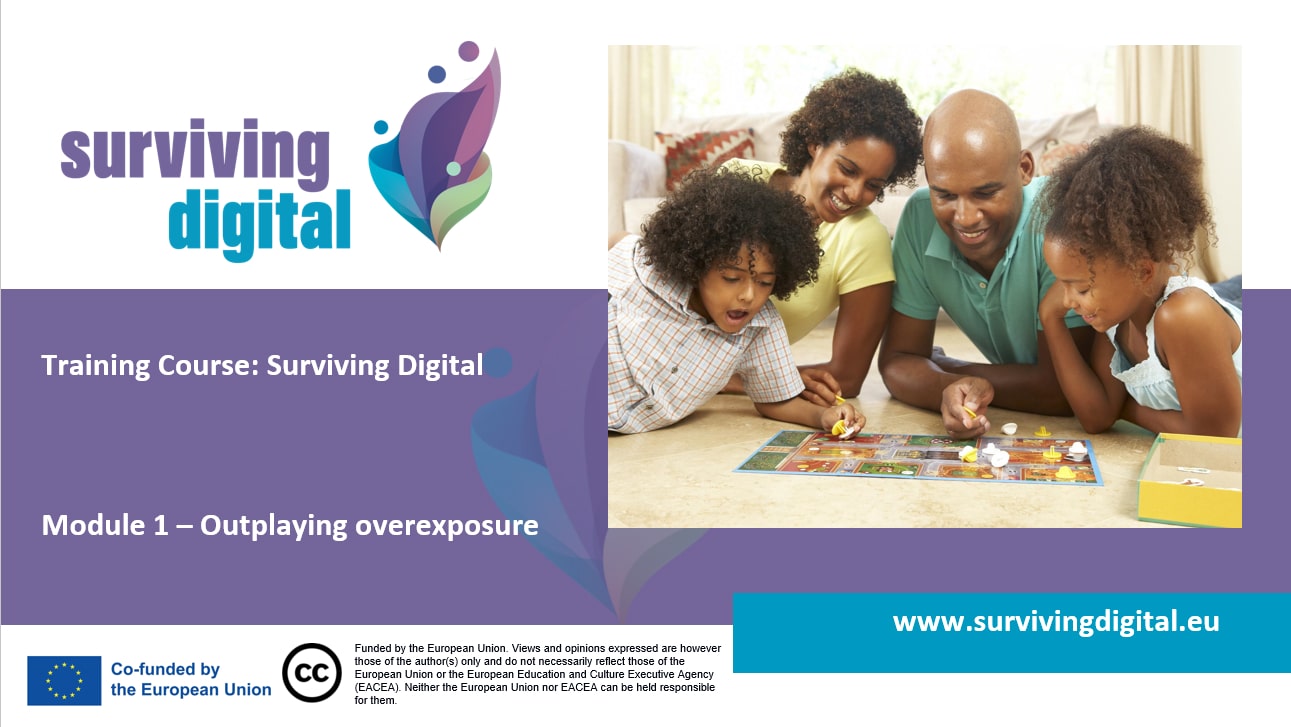
Deep knowledge and understanding of the digital world and screens is critical for professionals, but effectively communicating this knowledge directly to parents can be a major challenge for them as well. Many educators and health professionals fear being perceived as judgmental when informing parents about the possible negative consequences of screens and their leadership role. This module aims to provide professionals with an effective tool to overcome such concerns through the use of games designed to stimulate open and direct discussion.
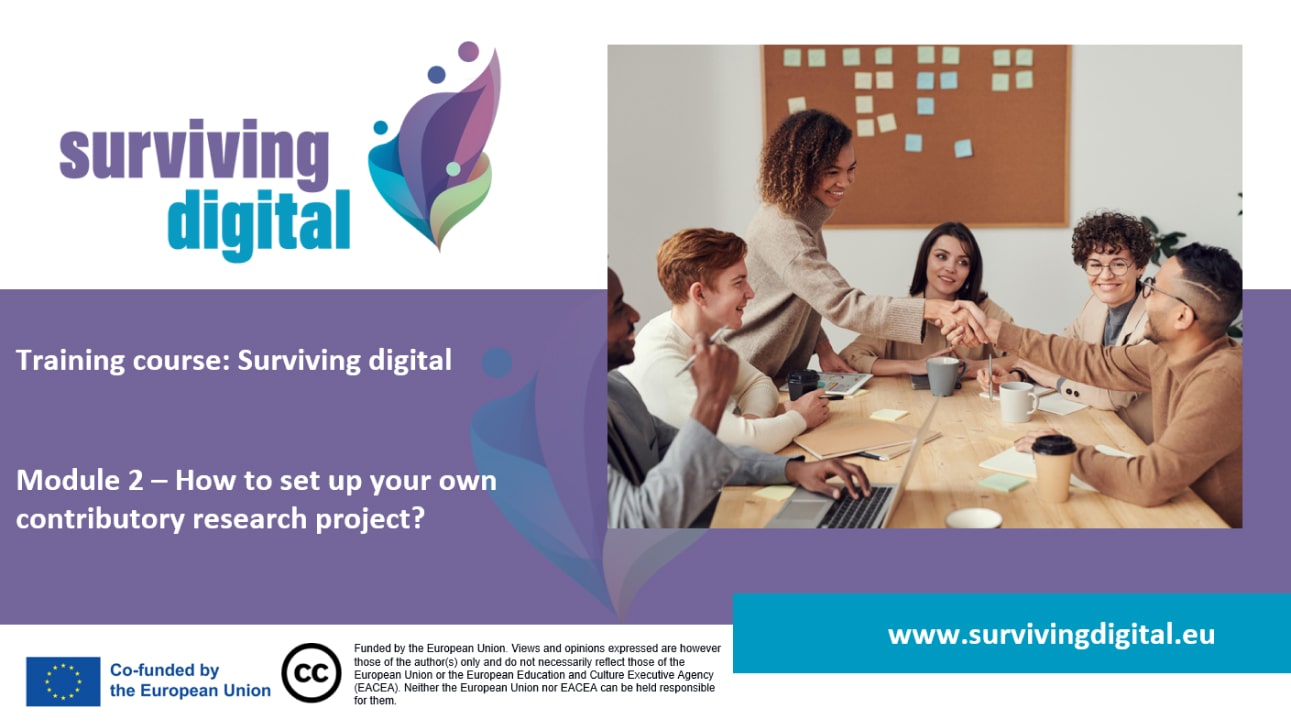
This module explores how to initiate a process of developing strategies against overexposure adapted to a particular local context. Building on the principles of action-research, professionals will be given the tools to initiate work with parents, researchers, and other professionals and to position themselves in meaningful ways to ensure fruitful and sustainable collaborative action.
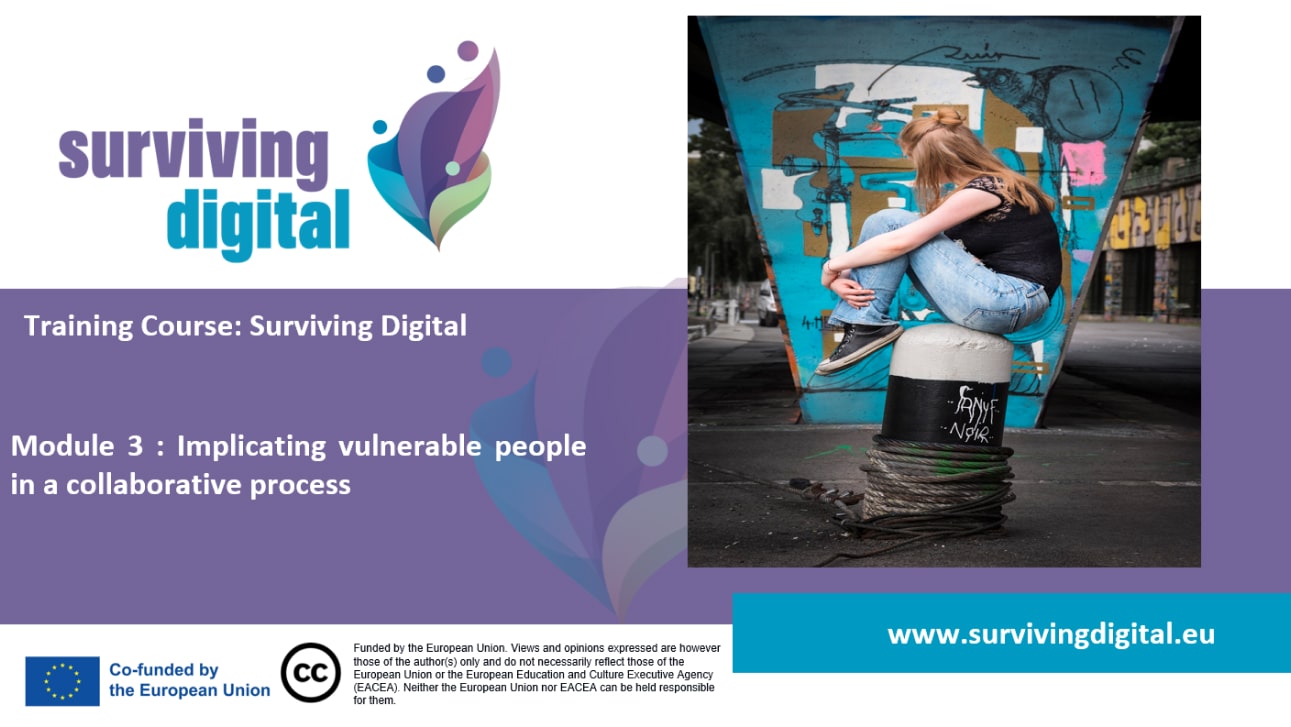
The module "Engaging Vulnerable People in a Collaborative Process" aims to equip educators and facilitators with the skills needed to engage and support vulnerable people in a collaborative pro-cess. In today's digital age, where technology plays a significant role in our lives, it is essential to address the misuse of digital resources and empower professionals to effectively guide adults in this "world." The activities proposed in the module aim to improve understanding of responsible digital behavior, assess digital privacy and develop critical thinking skills.
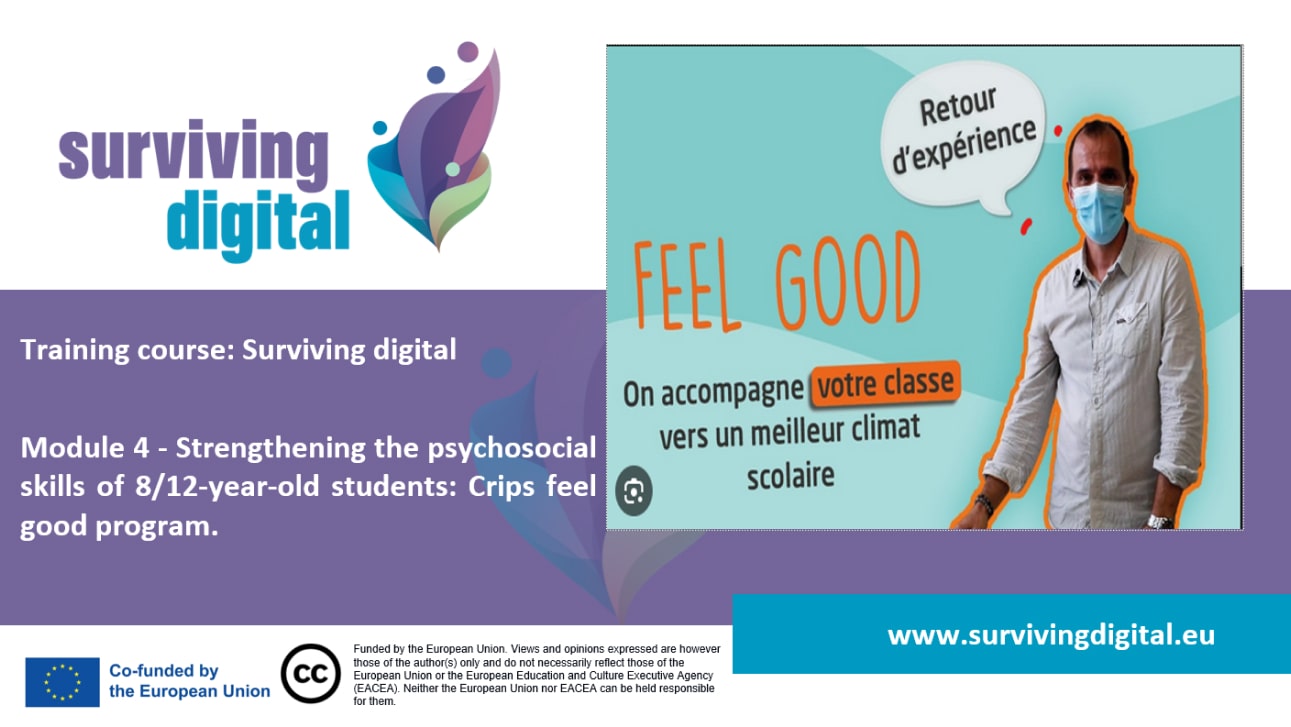
The module is based on the "Feel Good" project, a project already implemented in France. The goal of this module is to train schoolteachers to co-facilitate sessions on helping parents best de-velop their children's cognitive, emotional and social skills to fight screen addiction. Developing those skills youngsters will not need anymore the "virtual shelter" to feel safe. An overview of the-oretical knowledge is provided, including the 21 skills listed in three categories: cognitive skills, emotional compe-tence and social skills. Suggested techniques include hands-on activities such as the character forces game and the emotion wheel, along with practical advice for professionals involved in the program.
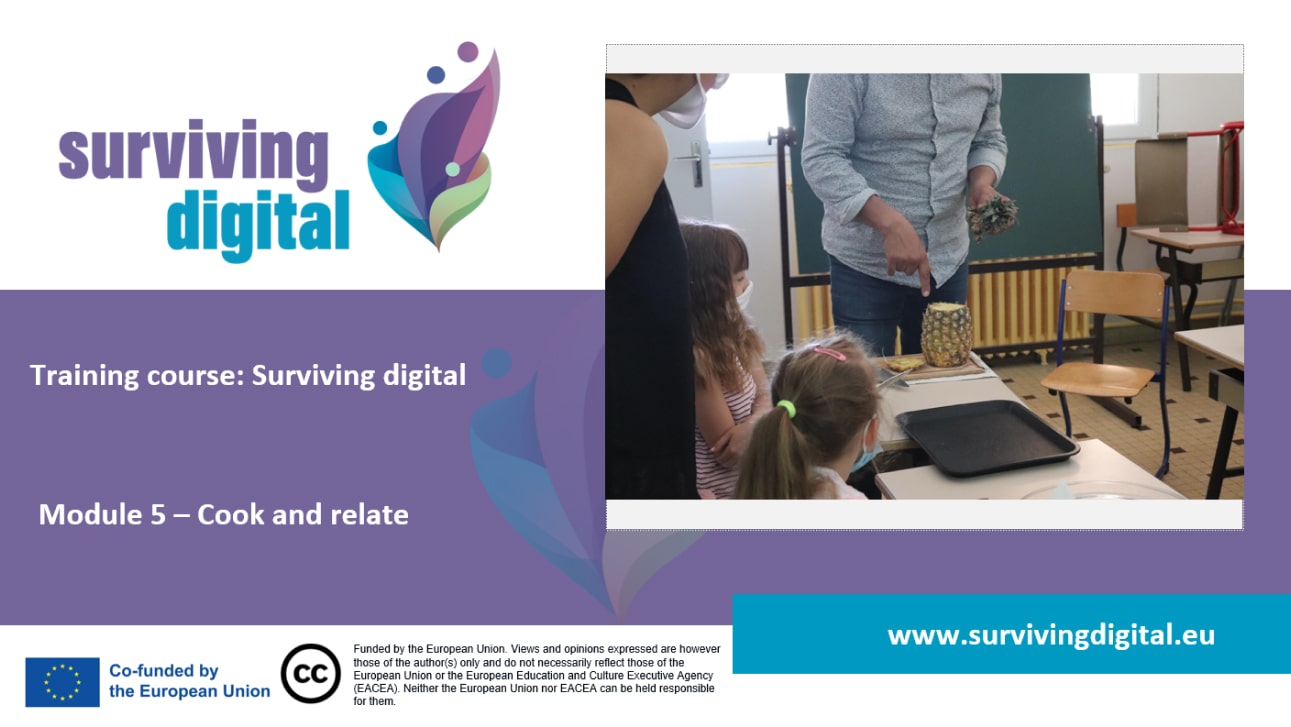
This module intends to transfer a successful European project called 'Day One' into useful tips for professionals who will use these activity to implement their own parent-child sessions in counte-racting the intrusiveness of digital screens. They will be able to understand how to involve parents and children in practical cooking activities to foster the sharing of culinary knowledge, the deve-lopment of language skills, teamwork and cultural awareness.
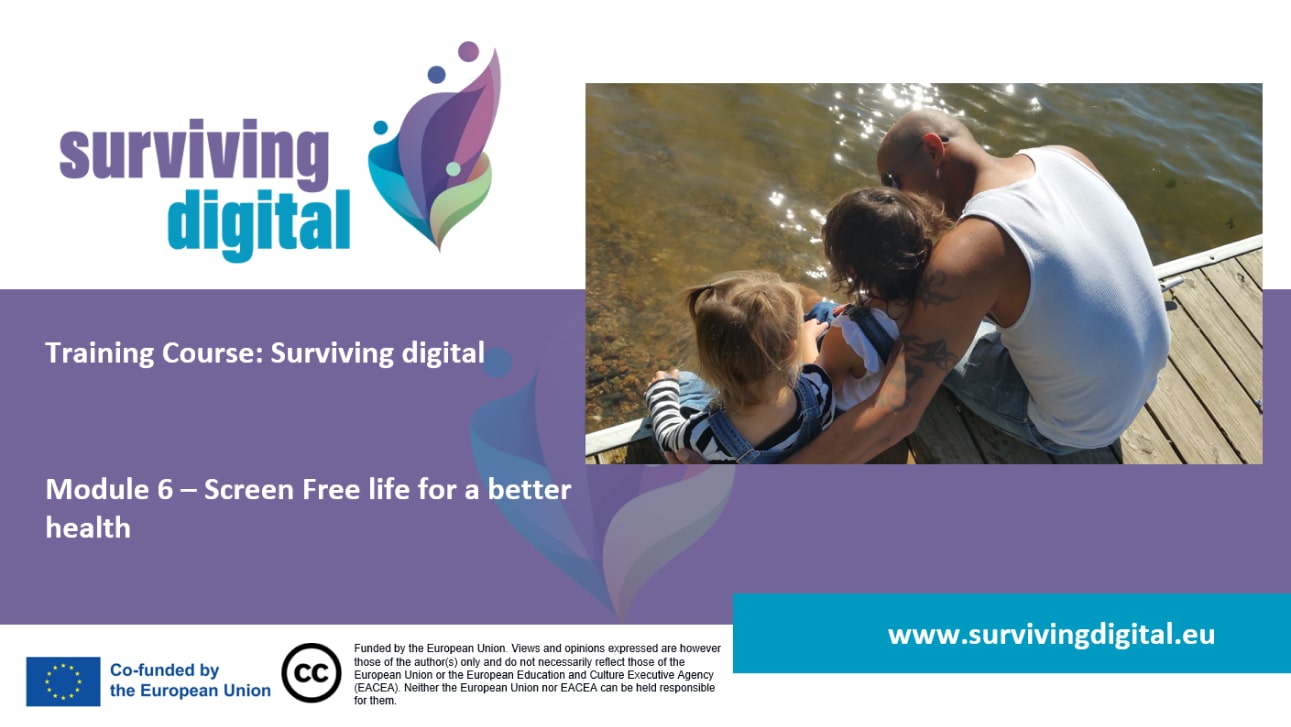
The goal of this module is to raise awareness of the risks of digital technology, support profession-als to have resources to help parents, and suggest appropriate alternatives. The goal is by no means to judge parents or make them feel guilty, but to use this tool to achieve the recommenda-tions of the World Health Organization: ban exposure to screens for children under 2 years old and limit it as much as possible between 2 and 3 years old. The module builds on two different projects already developed in France and which have received excellent feedback from participants. Sev-eral topics aimed at promoting a healthier and more balanced lifestyle, reducing screen use, and mitigating negative impacts on children's health are addressed.
